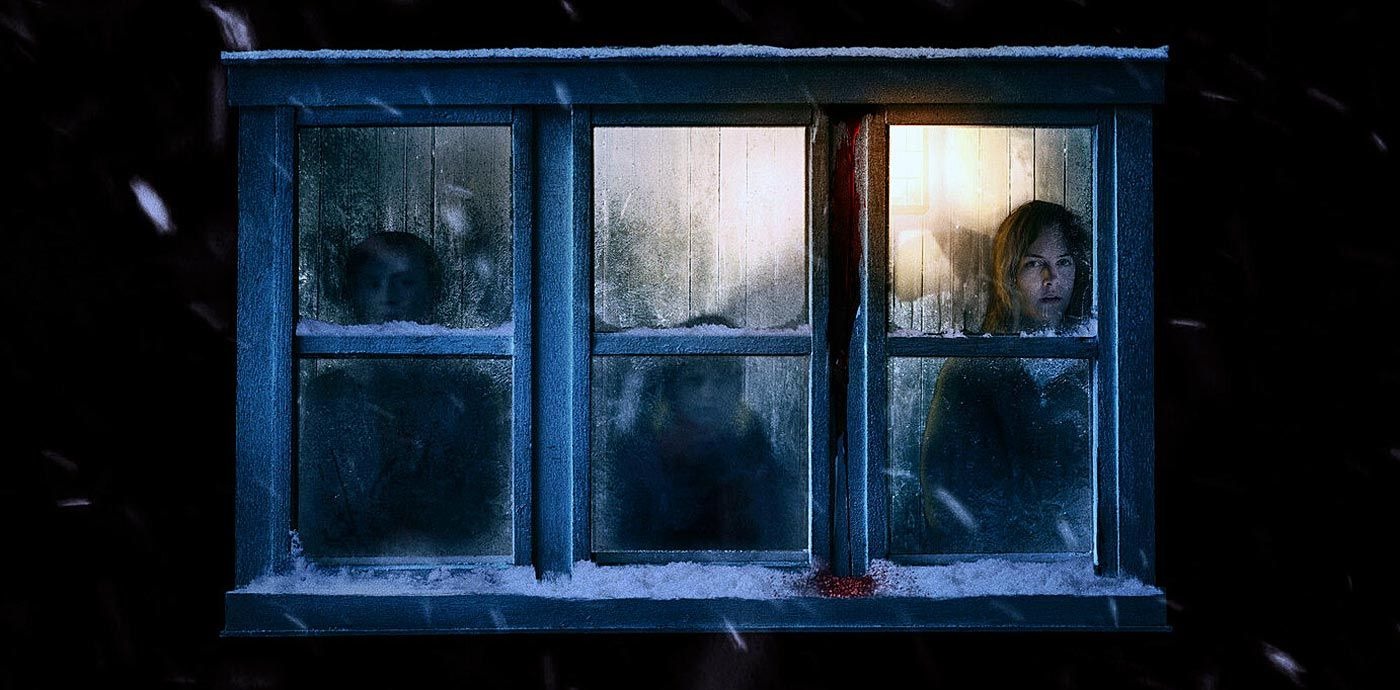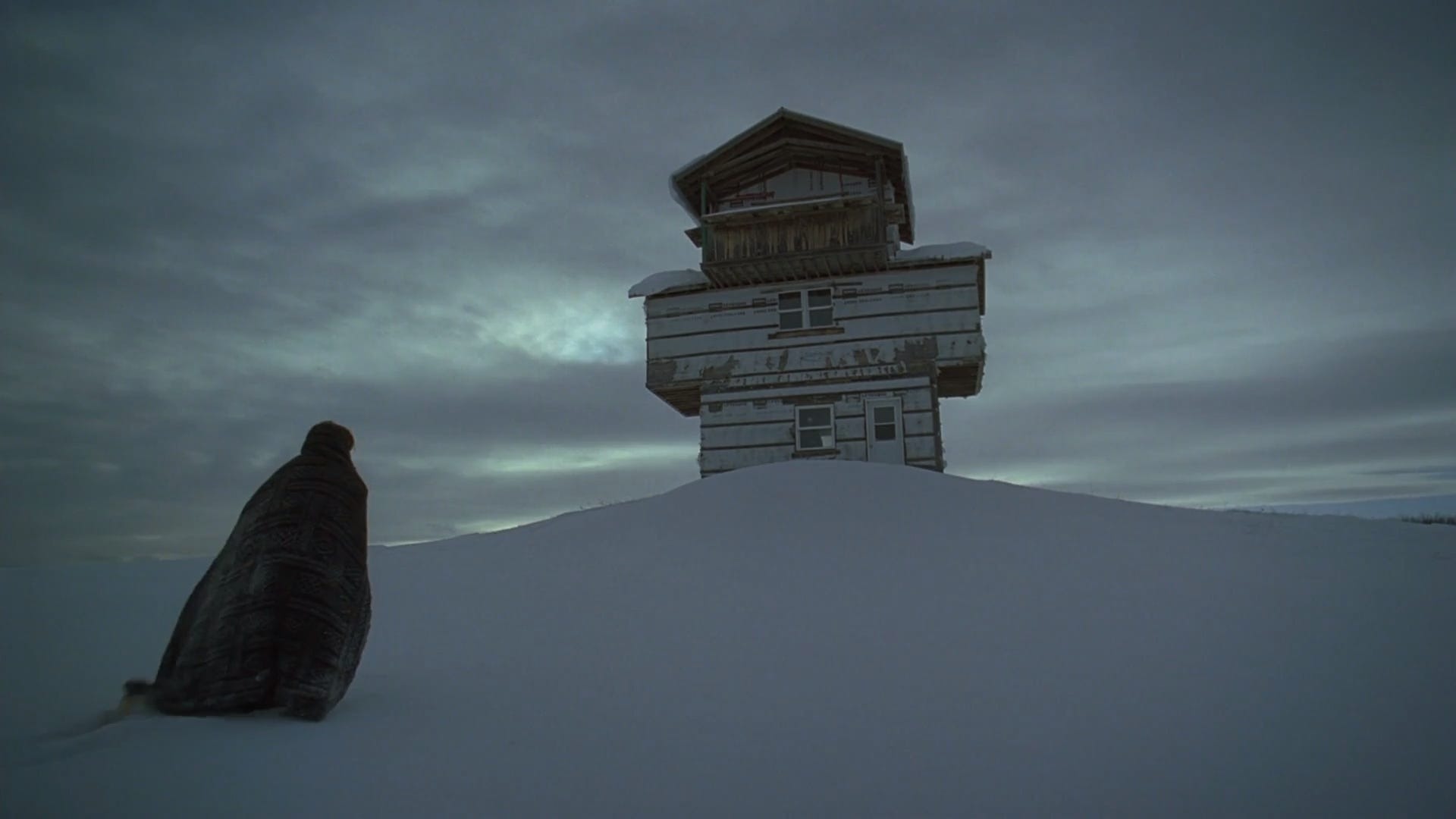Being completely cut off from the outside world can push even the strongest individuals to their breaking point, particularly when there’s an overwhelming sense of entrapment with no apparent way out.
Isolation doesn’t have to be experienced alone to become suffocating—being confined with others can breed paranoia and suspicion, making such distress spread rapidly.
This seems to be the initial premise of The Lodge, where Grace (Riley Keough) and two children become stranded in a remote winter cabin, only to have their basic necessities inexplicably disappear.

As unsettling occurrences intensify, their psychological states deteriorate, blurring the line between reality and delusion. Just when events spiral toward complete chaos, disturbing truths unravel the fragile perception of reality that the film meticulously constructs.
At its core, The Lodge crafts an agonizing psychological torment in which Grace is systematically manipulated into perceiving her surroundings in a way designed to reopen deep-seated wounds from her past trauma as a cult survivor.
Initially, the children, Aiden (Jaeden Martell) and Mia (Lia McHugh), appear to be victims alongside her, seemingly plagued by an unknown supernatural force or cosmic horror.
However, as events escalate and layers of deception are peeled away, the grim reality becomes evident. Looking back with the benefit of hindsight, it’s clear that the audience is misled just as much as Grace, deliberately coerced into questioning what is actually happening.
Although the film’s conclusion provides a clear resolution, examining the series of events that lead to such a grim and inevitable outcome reveals a harrowing descent into trauma and destruction.
The Decay of Resentment
A crucial element of The Lodge lies in its ability to pull the viewer into an oppressive and unsettling environment, where even before stepping into the vast, desolate winter setting, an unshakable unease takes hold.
Richard (Richard Armitage), who specializes in helping individuals escape cult indoctrination, makes the morally questionable decision to become romantically involved with Grace, the sole survivor of a mass suicide orchestrated by her father.
Given the severity of her past, she is left deeply scarred, making his pursuit of a relationship with her during such a vulnerable period troubling—particularly as he is already married. His actions culminate in an abrupt divorce from his wife, Laura (Alicia Silverstone), setting the stage for inevitable devastation.
Laura’s death by suicide sends shockwaves through her family, leaving her children reeling with grief and an unspoken resentment toward their father. That bitterness extends to Grace, who herself struggles with the burden of guilt stemming from Laura’s passing.
The film meticulously unpacks the unraveling of a family consumed by bitterness and destructive choices, portraying a slow, agonizing process that mirrors the way emotional decay gradually consumes a person until they project their suffering onto others.
Feeling powerless in their relationship with their father, Aiden and Mia turn their focus toward Grace, someone they perceive as weaker. Fully aware of her traumatic past, they exploit it to manipulate her, using religious imagery and recordings of her father’s sermons to construct a disorienting false reality.
As Grace’s grip on reality begins to fracture, the children’s actions escalate beyond their control. By the time they realize the irreversible damage they have caused, it is already too late.
Exploiting Deep-Rooted Trauma
Rather than painting Aiden and Mia as purely malicious figures, the film portrays them as children acting out a twisted form of retaliation against someone they blame for their mother’s absence.
Their grief fuels an insidious need to make someone else suffer in a way that mirrors their own loss, and in doing so, they orchestrate an elaborate deception designed to make Grace question her own sanity.
Despite their pain, their actions remain undeniably cruel—manipulating her vulnerabilities with full awareness of the consequences. They understand the harm they are inflicting yet persist until the situation spirals beyond their control.
Richard’s role in this tragedy remains particularly unsettling, as his fate removes any possibility of him recognizing the destruction he has left in his wake.
While his intention was not to cause irreparable harm, his self-absorbed nature allows suffering to spread unchecked. His children are left to grapple with emotions no child should endure, all while he avoids accountability for the misery he has played a direct role in creating.
The devastating conclusion could have been prevented had Richard exercised even a shred of sensitivity regarding his family’s emotional state.
His decision to force his children into isolation with Grace in an unfamiliar environment, without considering the potential ramifications, exemplifies his disregard for the well-being of those around him.
Though he may not have foreseen the tragic outcome, his lack of foresight and empathy speaks volumes. In many ways, he exploits Grace’s fragile state just as much as his children do—pursuing a romantic relationship with a trauma survivor still struggling to reclaim her sense of self, without offering the support or patience she truly needed.
A Cycle of Psychological Torment
Enduring years of religious indoctrination within a cult inherently warps an individual’s perception of themselves and their place in the world.
When compounded with the weight of religious guilt and rigid beliefs surrounding morality and salvation, the psychological toll can be profound.

Recovery from such an upbringing is neither straightforward nor linear, leaving one susceptible to further manipulation. Had Grace been allowed to heal on her own terms, she might have stood a chance at reclaiming her life.
Instead, she is thrust into a series of traumatic events—Laura’s death, Richard’s actions, and the psychological torment inflicted at the lodge—all of which reignite the very conditioning she spent years trying to escape.
Aiden and Mia also suffer the repercussions of their choices, and while the outcome may seem extreme, it is a direct result of the suffering they initiated.
Throughout the film, Grace experiences loss in ways that parallel her past, first with the mass suicide of her father’s followers—whom she considered family—and later with the unraveling of her own fragile sense of stability.
When Aiden and Mia exploit her past through carefully chosen triggers, they push her into a mental state where guilt and atonement consume her, finally overriding her rational judgment.
The theme of paranoia is explicitly referenced early on when the trio watches John Carpenter’s The Thing, a film that explores the fragility of identity and the way mistrust fractures human relationships.
Aiden’s psychological manipulation ends up having the exact effect he intended, though not in the way he expected. In the film’s final moments, all three are trapped in their own versions of purgatory, weighed down by the guilt and regret that drive them toward a grim fate.



